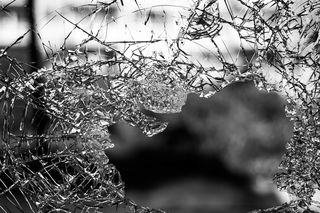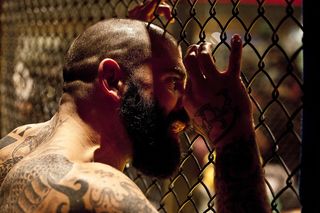Adverse Childhood Experiences
They Were Once Neo-Nazis. You Can Learn from Them.
Powerful stories of leaving hate groups offer insights for your own life.
Posted November 6, 2019
“I practiced violence until it was natural and the violence became who I was. I needed it like fuel, and I would beat other human beings to the point of hospitalization to get that hit of adrenaline.” That’s former neo-Nazi Arno Michaelis.
In many ways, we each share a lot in common with him. Each of us is a human being and, as such, each of us is overwhelmed. We can’t control what happens to us moment by moment, day by day. We want the promotion and someone else gets it. We plan for a future moment that will make us happy and when it arrives, it’s not so great. We can be injured or lose a loved one in the blink of an eye. Our shared home is in the midst of a terrifying mass extinction and accelerating climate change.
Our lives are forever changing and there’s so much that’s out of our control.
The fact of our own smallness and utter dependence on so many people and processes beyond us, no matter who we are, is a useful starting point when considering how some folks descend into lives of hate.

Each individual is different and models that try to predict who will become violent have not worked well. This is because there are a bewildering number of factors contributing to the people we become. Certainly, adverse childhood experiences, substance abuse, hateful media, thrill-seeking, and his ideas about gender all played roles for Michaelis. But to hear him tell it, essentially he responded to our scary and threatening world by practicing and eventually craving violence and control over people.
Any of us can learn to fight against whoever and whatever we come to view as less than us and as the source of our pain and problems. Surveys asking questions like “How evolved do you think other people are?” suggest that a lot of hateful views relate to a belief that some groups of people are less human than we are.
Yet strangely enough, in an eternally imperfect world that’s so full of violence, where we’re always somewhat overwhelmed and never totally safe for long, where it can be so tempting to hate, we also have immense power. Here’s how one woman used her power when confronted by Michaelis.
“Somehow, the elderly black female cashier at McDonald’s could see the potential for good in the tattoo-covered neo-Nazi standing in front of her. Spotting the swastika tattoo on Michaelis’ middle finger, she looked at him and said, ‘I know you’re a better person than that. That’s not who you are.’ Michaelis ran out of there and never went back. ‘The purpose of that tattoo was to flip my middle finger with the swastika at people so they’d be frozen like a deer in the headlights,’ he says. ‘But when she met my hate with such compassion, I couldn’t fight back.’”
This act didn’t immediately force Michaelis to give up his life of hate. It’s likely that nothing could have. But it did leave him vulnerable. Over time, a process of change unfolded for him.
Receiving enough compassion and kindness when he’d done nothing to deserve it made it difficult to maintain the momentum of his hate. Although each path into hate is different, and there are no perfect or one-size-fits-all strategies to help people get out again, simple acts of kindness do appear to be slow-acting but powerful helplines.

Sammy Rangel was a violent gang member who today is Executive Director of Life After Hate, a nonprofit that helps people get out of hate groups. He says that when he looks at the many former hate group members he’s worked with there’s a pattern: “Compassion and empathy are common themes in what helped turn us around.”
Hatred may be thrilling for a while, but it is also exhausting. The story of Zak Ebrahim offers a poignant description. Ebrahim was raised by a violent and hateful father. Later in life when we began actually interacting with the people he’d been raised to hate, he found it tough to keep on hating them. He confessed this new turmoil to his mother. He recalls, “She looked at me with the weary eyes of someone who had experienced enough dogmatism to last a lifetime and said, ‘I’m tired of hating people.’”
This makes sense. Constantly maintaining a prejudiced narrative about those around us can leave us going through life in a threatened state, on permanent high alert. As psychologist Elizabeth Page-Gould explains, feeling threatened like this “restricts our blood flow and releases the hormone cortisol, which breaks down muscle tissue and halts digestive processes so that the body can quickly muster the energy it needs to confront the threat. Over time, these responses wear down muscles, including the heart, and damage the immune system.” This means that prejudice can increase our risk of chronic stress-related health problems from cancer to Type II diabetes.
I’ve touched on men so far, but it’s important to point out too that women play significant roles in hate groups. Katie McHugh got a lot of attention for her hateful views. Her story offers some interesting insights. McHugh rationalized hateful tweets by thinking they were “jokes gone wrong and that, on some level, she’d said these things because she’d been egged on by others.” McHugh now states that she takes responsibility for the many horrible ideas she helped to spread, while noting that she didn’t get there alone, but was part of a whole network where “my vindictiveness and my capacity for cruelty were encouraged.”
A technique McHugh learned was never to apologize for her hate, but rather to mock the people accusing her of it, framing herself as a victim who is shunned for honestly sharing what others are too “politically correct” to. Many formerly hateful individuals like McHugh have felt at the time that they were “intelligent holders of taboo truths.” These “taboo” claims—like that some races are more intelligent than others—have been raised by various popular voices in recent years, but they aren’t truths. They’ve been convincingly debunked. But for many would-be believers like McHugh, the idea of protecting “taboo truths” allows for both knowing that they’re hurting people, and still believe that their actions are necessary, maybe even noble.
There is no quick fix, but I’ve collected a lot of stories and evidence about what can help transform destructive conflicts of all types, including the rise of hate. Our options are far richer than we’d think.




